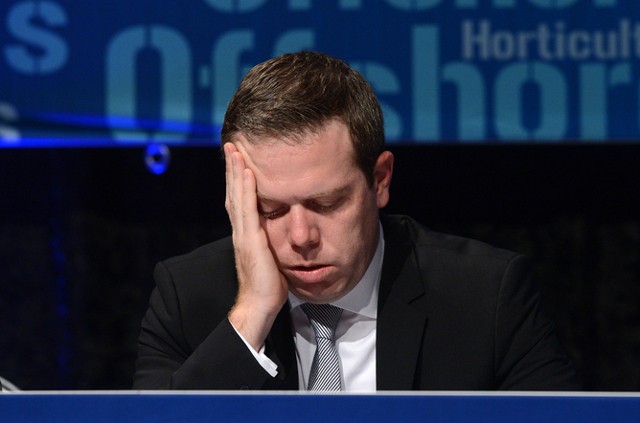ALP powerbroker Paul Howes has called on the party to enforce a binding vote to support same-sex marriage. But where does it fit in with the narrative of gay rights in Australia?
Suddenly, it seems the Right faction of the Australian Labor Party has embraced gay causes – or as we now say, LGBTI ones. On the campaign trail for the party leadership, Bill Shorten floated the idea of a quota for LGBTI candidates, though he subsequently acknowledged some problems with the idea. More recently, union boss Paul Howes argued that ALP parliamentarians should be bound by the party platform to support same-sex marriage.
Those of us with even short political memories might feel cynical about this sudden discovery of gay causes, which represent an attempt by a younger generation to define themselves as “progressive”. The proposals themselves are less interesting than the way in which gay causes have now become a defining point for progressives.
Shorten’s proposal is probably impractical, but at least it acknowledges that queer folk – to use a convenient catchall phrase – are considerably under-represented in public life. However, there are many ways in which governments might address this, not least through appointments to high office.
Australia has had several openly gay judges and ambassadors, although no-one has the public profile of the new US Ambassador to Australia, John Berry. But we have yet to see an open lesbian, gay man or transgendered person head any major government body, let alone a university. Indeed, the private sphere is ahead in this regard, though Qantas CEO Alan Joyce does cut a solitary figure.
Howes’ argument has more substance, and it is strange that a party that insists on a stricter control of its parliamentarians than almost any other in a liberal-democracy should single out this one issue as a matter of conscience, as if other issues – such as the treatment of asylum seekers and live animal exports – are not.
However, real reform of the Labor Party would mean relaxing – not increasing – discipline, and encouraging MPs to acknowledge there are inevitably a variety of views within any major party. This would make a parliamentary career more attractive than the prospect of becoming a nodding head behind images of the party leader talking to schoolkids or visiting factories.
The larger question is why have queer issues, especially same-sex marriage, become so politically salient. We know that most Australians are relaxed about the prospect, that a small minority have very strong views for and against, and yet the question is constantly raised in almost every public forum. What began as an issue associated with the Greens has now moved to a central issue for the ALP, and a continuing source of vexation for those Liberals who have been denied a free vote on the issue.
I have argued elsewhere that the marriage question is largely symbolic. Indeed, I share Julia Gillard’s critique of marriage as an outmoded institution which is not the business of church and state. Unlike Gillard, however, I don’t want to impose that view on others. Same-sex marriage advocate Senthorun Raj has clearly pointed out the inconsistencies in her position.
Do we need to move beyond same-sex marriage in the gay rights debate in Australia? AAP/Daniel Kalisz
But if marriage is a symbolic issue, it represents a yardstick for how comfortable our politicians are with diversity. The major resistance to same-sex marriage comes from religious leaders, but most Australians – including many who are personally religious – believe strongly in a secular state. As long as marriage remains an institution legitimised by the state, there is no reason why religious leaders should have a privileged position in arguing for how it is legally defined.
Shorten and Howes recognise this. But are they prepared to go beyond the easy issue of marriage – which British prime minister David Cameron said he supports because it is a conservative institution – and tackle the much harder issues of homophobia in state-supported fundamentalist schools?
Perhaps the newly-found progressives of the Labor Right could address the role of fundamentalist churches in running a schools chaplains program and the perpetuation of homophobia in a number of schools. The latter was revealed in Tony Abbott’s campaign visit to Penrith Christian School, which teaches that homosexuality is an “abomination”.
Australia has lagged behind a number of other countries, including the United States and Britain, in addressing the appalling persecution of people for their sexuality in many parts of the world. One hopes that when Abbott meets US president Barack Obama and David Cameron they might brief him on this. Meanwhile, Labor progressives need to develop some effective policies on how Australia might support international moves to extend rights to people persecuted for their sexuality.
In practice, the Rudd/Gillard government took a number of important steps towards greater equality which have been overlooked by the emphasis on same-sex marriage, and particularly by Rudd’s late (and politically convenient) conversion to support it. If the new leader of the Labor Party really wants to show support, there are some real policy challenges which go beyond feel-good symbolism.
Photo: AAP/ David Hunt
Author: Dennis Altman
Publication: The Conversation
Date: 4 October 2013

